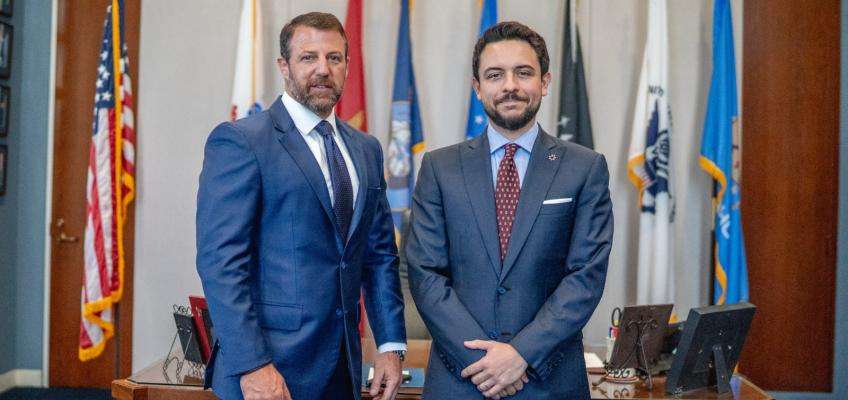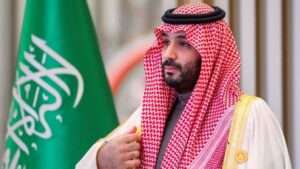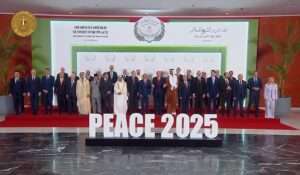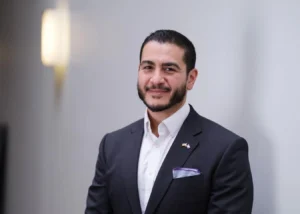By Maria Maalouf
Jordan is seizing a historic moment on the global stage. The recent appointment of Ihab Omeich as Deputy Assistant Secretary-General for Counterterrorism and Director of Policy at the United Nations Office of Counter-Terrorism (UNOCT) coincides with a high-profile visit by the Jordanian Crown Prince to Washington, signaling an unprecedented convergence of Arab expertise and U.S.-Jordanian strategic alignment.
Omeich, who previously served as Deputy Permanent Representative of Jordan to the UN and Director of the Rule of Law Unit in the Secretary-General’s office, brings rare multilateral experience to UNOCT. His portfolio goes beyond tracking terrorist networks: it encompasses governance reform, counter-radicalization strategies, and policy frameworks that integrate human rights, rule of law, and social development into counterterrorism initiatives. In short, he is positioned to influence how the UN balances hard security measures with sustainable, inclusive solutions.
Simultaneously, the Crown Prince engaged directly with U.S. lawmakers who shape national security and foreign policy, including Senators Lindsey Graham, Jeanne Shaheen, James Risch, Katy Bright, and Congress members Mario Diaz-Balart, Brian Mast, and Lisa McClain. These meetings indicate Washington’s recognition of Jordan as a key strategic partner — a country that can bridge Middle Eastern realities with U.S. policy objectives.
The alignment of these events is significant. While Omeich is shaping international counterterrorism policy from within the UN, the Crown Prince is ensuring that Jordan’s strategic priorities are directly communicated to U.S. decision-makers, including congressional leaders who authorize funding, partnerships, and security cooperation. This dual approach ensures that Jordanian perspectives — grounded in regional expertise and operational experience — are embedded both in multilateral frameworks and U.S.-Jordan bilateral engagements.
For policymakers, this offers an actionable insight: Jordan is not just a recipient of U.S. security support; it is a proactive architect of counterterrorism strategies, influencing both global norms at UNOCT and operational priorities in Washington. The Crown Prince’s meetings with senators and congress members involved in defense, intelligence, and foreign affairs indicate a deliberate effort to coordinate policy approaches across international and domestic platforms, from New York to Capitol Hill.
The implications are clear: Arab diplomats like Omeich can no longer be peripheral voices in global security debates. His role at UNOCT, combined with Jordan’s congressional engagement, signals a model for Arab leadership in shaping policy — one that integrates diplomacy, operational insight, and strategic advocacy.
Jordan’s approach demonstrates that effective counterterrorism requires coordination at every level: international organizations, regional partners, and global allies. Ihab Omeich’s appointment is not symbolic; it is a vehicle for Arab influence in policy-making. The Crown Prince’s Washington tour complements this by translating regional expertise into actionable engagement with U.S. lawmakers, ensuring that Arab voices help define the rules of the global security architecture, not merely respond to them.
For the Arab world, this is a blueprint for influence: combine skilled diplomacy at international institutions with high-level engagement in allied capitals. For the United States, it is an opportunity to deepen cooperation with a trusted partner who offers both strategic vision and operational insight in one of the most complex theaters of global security.















